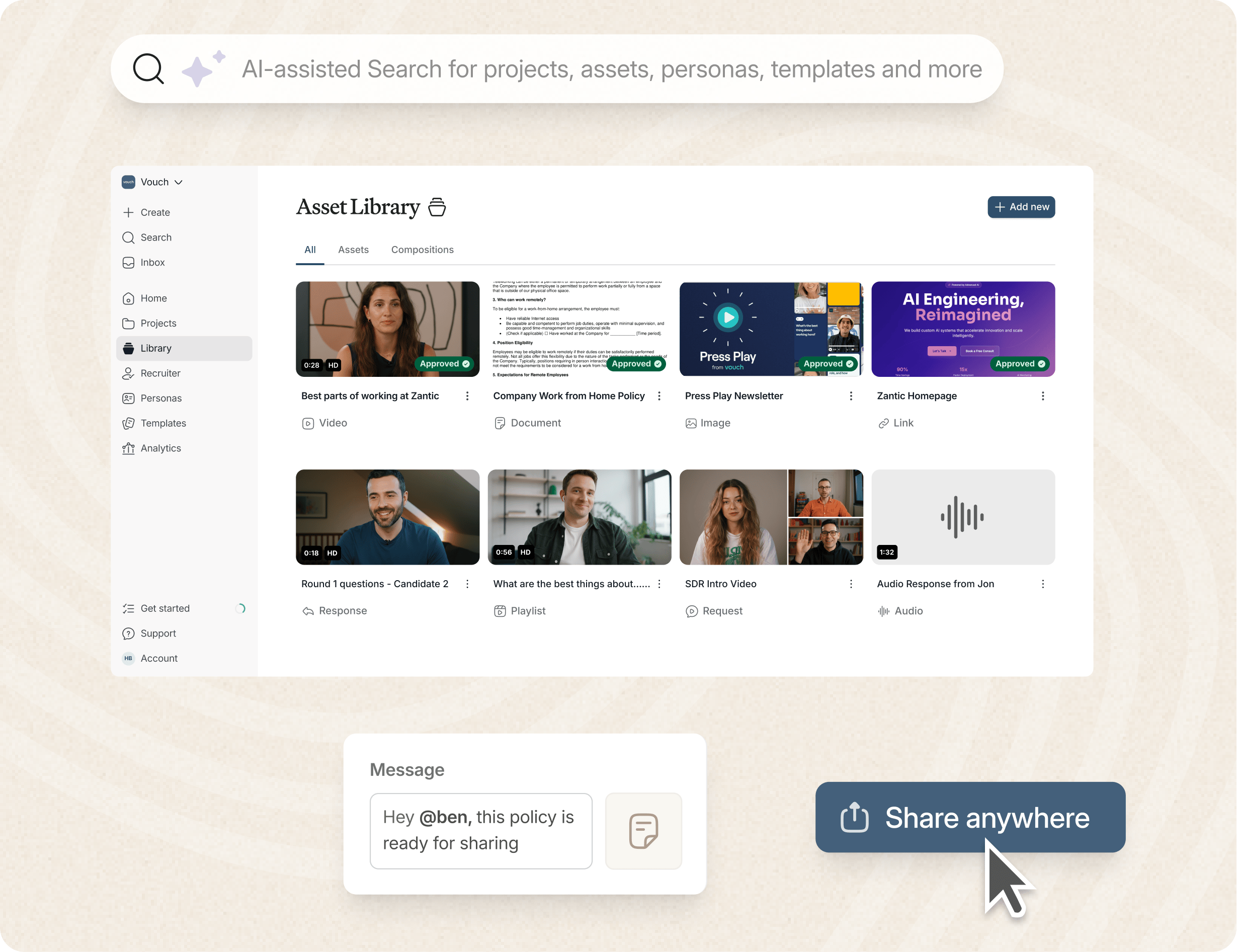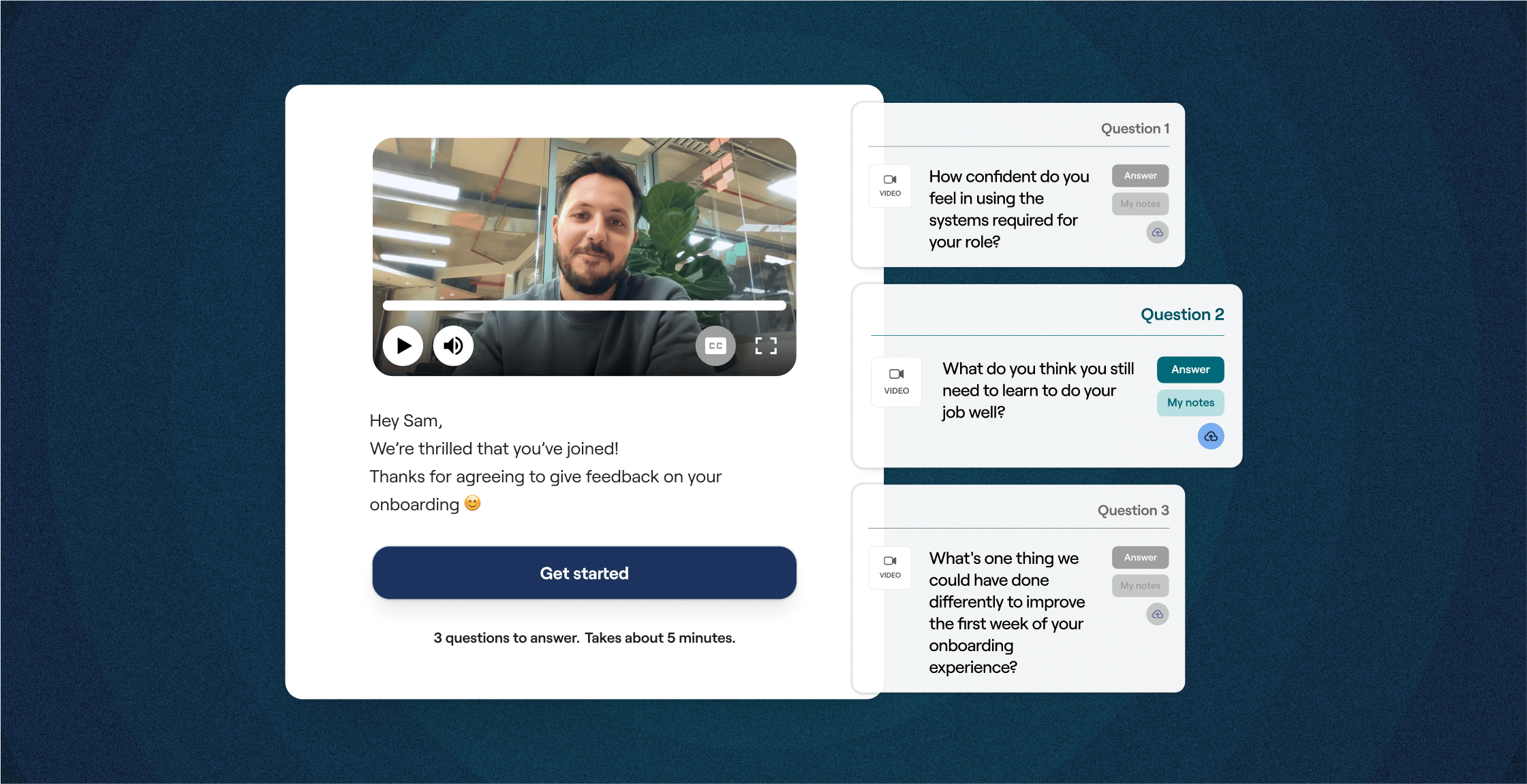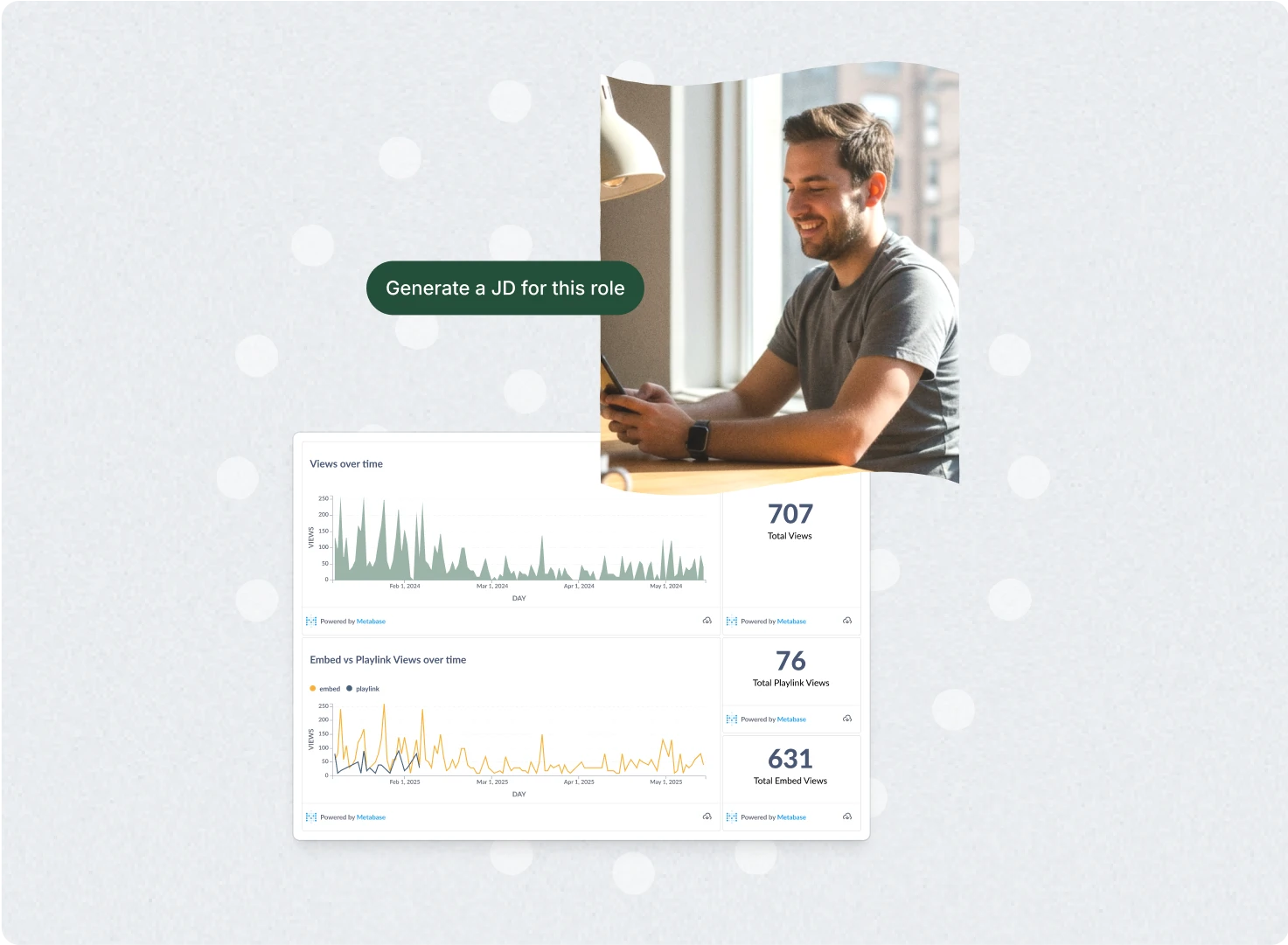A human resources specialist plays a critical role in managing any medium to large organization's workforce.
Human resources specialists are responsible for tasks like recruitment, maintaining employee records, benefits administration, and ensuring compliance with employment laws.
But in 2026, the scope has expanded further, with HR specialists contributing to business strategies, talent management, and training programs.
Let's dive in!
Snapshot of an HR specialist's responsibilities in 2026:
- Recruiting and screening job applicants.
- Managing employee records and benefits programs.
- Conducting interviews and background checks on job applicants.
- Coordinating training materials and professional development for current employees.
- Advising on human resources policies and employment termination paperwork.
Let's dive deeper into what makes this specialist role indispensable today.
How Has the HR Specialist Role Changed Over Time?
The role of HR specialists has evolved drastically in recent years.
In 2026, they are no longer just administrative task handlers but key contributors to organizational success. They balance operational matters like employment records with strategic responsibilities like retention programs and crafting compensation strategies.
Here are some notable trends shaping the HR landscape in 2026:
- Focus on Retention: According to the Bureau of Labor Statistics, turnover rates in some industries exceed 25%. HR specialists focus heavily on creating retention programs and talent development programs that prioritize professional goals and employee relations.
- Data-Driven Decisions: Advanced tools and AI content platforms like Vouch help specialists analyze job outlooks and applicant qualifications and even predict employee performance.
- Diversity Recruitment: HR specialists actively work to attract a wide range of candidates, often through job fairs, college campuses, and modern strategies like growing your employer branding online.
- Flexibility and Hybrid Work: Companies now offer a wider range of accommodations to applicants, especially with remote and hybrid work models.
The AI-enabled workspace for talent teams.
- Unified workspace for talent teams
- Accelerate hiring with AI tools
- Auto-generate polished hiring and employer brand content
- Easily repurpose assets across all channel

What Skills Are in Demand for HR Specialists?
To succeed in 2026, a Human Resources Specialist must possess a mix of technical, interpersonal, and strategic skills. Employers are looking for HR professionals who demand skills that address modern workplace challenges, like a focus on diversity and inclusion.
Key Skills for Human Resources Specialists:
- Interpersonal Skills: Building trust and maintaining employee relations.
- Communication Skills: Explaining benefits packages and company policies and conducting exit interviews with employees.
- Business Management Skills: Designing compensation packages and retention programs that align with business strategies.
- Administrative Skills: Handling hiring-related paperwork, applicant qualifications, and employment records.
- Compliance Knowledge: Staying updated on employment laws, including accommodations to applicants and harassment allegations.
What is the Job Outlook for Human Resources Specialists in 2026?
The job market for HR specialists is thriving, thanks to increasing employment opportunities across diverse industries. Here is some hard data:
- Bureau of Labor Statistics: Employment of HR specialists is projected to grow 8% from 2021 to 2031, faster than the average for all occupations. Source: Bureau of Labor Statistics
- Annual Wage: The median annual wage for HR specialists is $60 - $80k USD in 2026, but this can vary based on industry and experience level. Source: BLS Employment and Wages
- Demand in Specific Industries: Industries like technical services and consulting firms are creating a surge in job opportunities for specialists. Source: SHRM
- Impact of AI: 72% of HR departments now use AI tools for applicant tracking and job analysis, making tech-savvy HR specialists highly desirable. Source: SHRM
- Flexible Roles: HR specialists working remotely or in hybrid roles have increased by 40%, reflecting the changing nature of employment. Source: Gartner on Hybrid Work
How Can You Become an HR Specialist?
Becoming a human resources specialist requires a blend of education, certifications, and practical experience.
Typical Qualification Requirements:
- Degree Program: A bachelor's degree in Human Resource Management, business management, or a related field.
- Certificate Programs: Certifications like SHRM-CP or PHR can significantly boost career paths.
- Training Needs: Some roles, such as benefits specialists or recruiting strategies managers, may require specialized training in benefits administration or selection interviews.
Career Development Options:
- Entry-Level Roles: Administrative Specialist, Personnel Specialist.
- Mid-Level Roles: Career Retention Specialist, Human Resource Professional.
- Advanced Roles: Talent Management Consultant, HR Manager.
What Are the Benefits of Being an HR Specialist?
HR specialists enjoy diverse career paths, professional growth, and competitive compensation.
Benefits of the Specialist Role Include:
- Comprehensive Benefits Package: Most HR specialists enjoy robust employee benefit programs, including healthcare, retirement plans, and tuition reimbursement.
- Wide Range of Opportunities: From recruitment specialists to development specialists, the career paths are varied and rewarding.
- Transferable Skills: Communication and organizational skills gained in this role are invaluable in any industry.
- Job Security: The demand for HR professionals remains steady, even in fluctuating economies.
FAQs
What does a human resources specialist do?
They handle recruitment, onboarding, employee relations, benefits programs, and compliance with employment laws.
What is the average salary for HR specialists in 2026?
The median annual wage is $64,240, but it varies by industry and role.
What qualifications are needed to become an HR specialist?
A bachelor's degree in Human Resources, business, or a related field is typically required.
What industries employ the most HR specialists?
Consulting firms, technical services, and large corporations lead the hiring of HR professionals.
Is HR a good career in 2026?
Yes, it offers job security, competitive pay, and career advancement opportunities.
Do HR specialists need certifications?
Certifications like SHRM-CP or PHR are highly recommended but not always required.
What is the role of technology in HR?
HR specialists use AI and software tools like Vouch for creating content and tools for applicant tracking, job analysis, and performance management.
If you're considering a career in Human Resources or simply want to understand the evolving specialist role, this field promises a mix of stability, growth, and impactful work.
See Why HR Specialists Love Vouch!
Loved by companies like Canva, Nike, Cisco, HubSpot, Amazon, and more, tools like Vouch make leveraging Video in your HR processes remarkably easy.
Book a Vouch demo today and chat with a video content marketing expert.
You might also like

Elevate Your Brand Today With Vouch
Discover how Vouch can accelerate talent acquisition while helping you stay on-brand.






